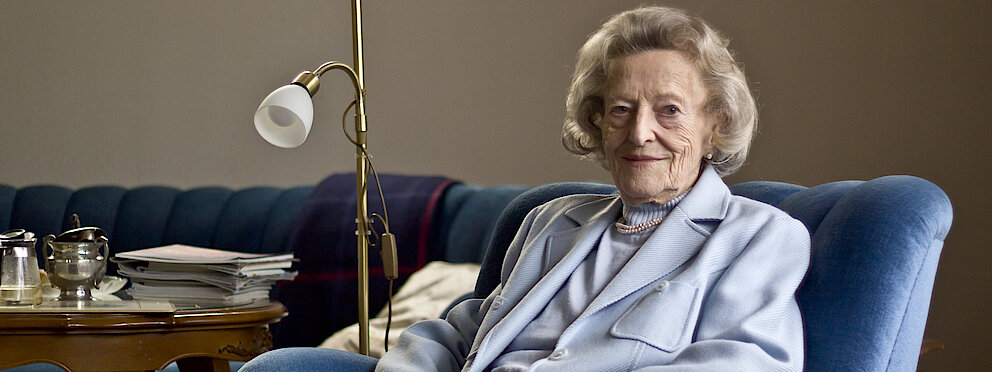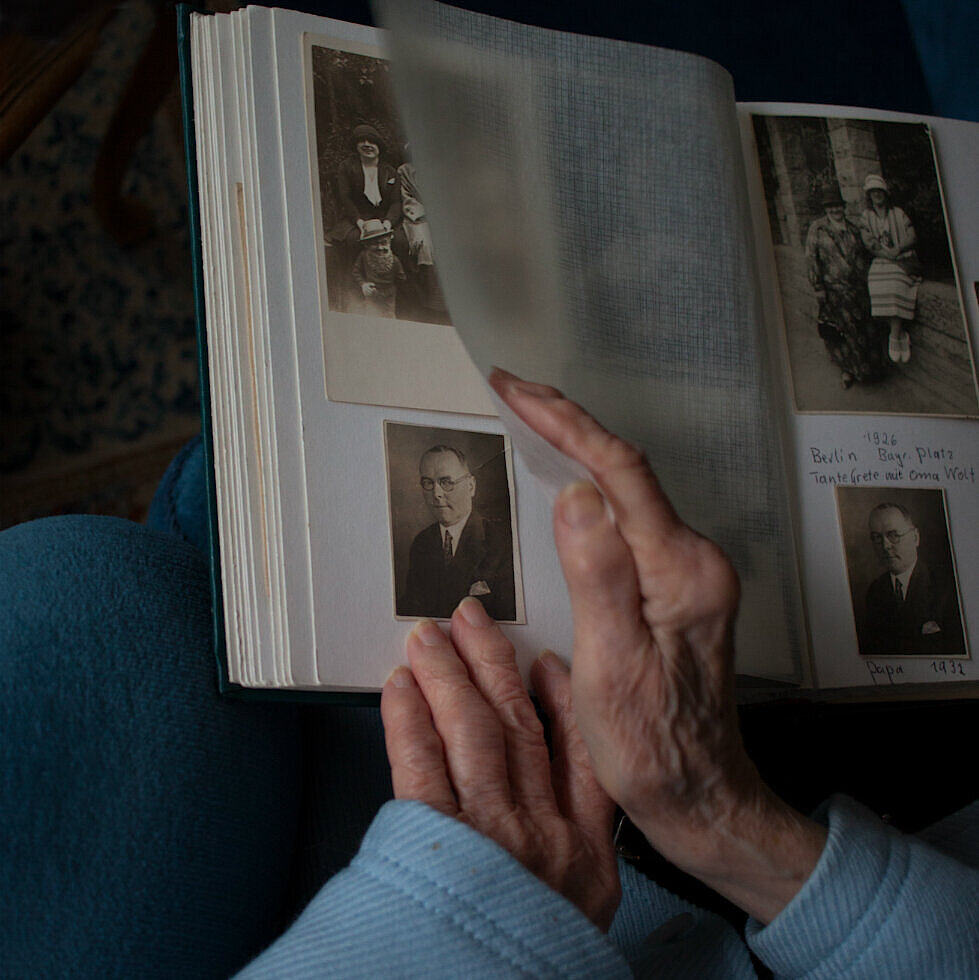
Henny Brenner
About Henny Brenner
Henny Brenner spent a carefree and happy childhood. Her life changed abruptly when the Nazis came to power. Categorised as "half-Jewish" by the National Socialists, she had a certain protected status due to her parents' so-called "mixed marriage", but the family increasingly became the target of harassment and exclusion. At the age of 16, Henny was conscripted into forced labour for the armaments industry. On 13 February 1945, Henny and her mother also received a deportation order. The family was desperate, but on the same night the Allied air raids on Dresden began. Due to the chaos that now prevailed in the city, Henny and her mother were able to escape deportation at the last moment. They hid in an empty house until they were liberated by the Russian army on 8 May.
The family decided to stay in Germany and start a new life. But in 1952 they had to pack their bags again: Henny and her parents fled from the GDR to West Berlin. There, Henny met Hermann Brenner, and together they moved to Weiden in the Upper Palatinate. Hermann Brenner founded the Jewish community there and was its chairman for over 40 years. He died in 2004.
Even in post-war Germany, Henny repeatedly encountered anti-Semitism. Although it was not easy for her to speak regularly as a contemporary witness at schools after reunification, she therefore decided against forgetting. She always urged society to oppose anti-Semitism, racism and discrimination and to stand up for tolerance. In 2001, she published her autobiography "Das Lied ist aus. A Jewish fate in Dresden".
Henny Brenner died on 16 May 2020 at the age of 95.
"Today, some people say: We can't believe that. I can understand people saying that. But you can't deny it either, you're not allowed to."


Our encounter
During our interview in 2015, we got to know Henny Brenner as a very passionate, funny, clever and warm-hearted woman who campaigned for tolerance with all her might.
It is not easy for any survivor to talk about the extreme trauma of the Shoah. During our conversation with Henny, we realised that talking about it is also very painful for her and opens up old wounds: "I have the feeling that I now have high blood pressure. It has shot up, yes, that's what happens when I talk about things. It just gets under your skin."
Nonetheless, she was brave enough to do it so that "young people would hear". Talking about the horrors of National Socialism also means learning from the past for the future and acting in the present. Henny Brenner's story is therefore also a warning to confront the social developments that caused her great concern: No one should close their eyes to the anti-Semitism, racism and marginalisation that still exist today.
"Everyone had a small suitcase at the time, the flight luggage. They had a few shoes in there, a bit of washing. Not me, I had a book in there, which I liked, and photos." When she fled during the night of the Dresden bombing, Henny Brenner decided to take the photos from her childhood and youth with her instead of using the space for practical things.
In our conversation, we could sense the great significance these memories of the many deceased family members and friends and of her childhood and youth in the Elbe metropolis of Dresden had for Henny throughout her life.
"Everyone had a small suitcase at the time, the flight luggage. They had a few shoes in there, a bit of washing. Not me, I had a book in there, which I liked, and photos."
A portrait and a "commentary picture" are also created as part of each eyewitness interview, and we show these photographs in our own exhibition. The small commentary picture reflects the response of the eyewitnesses to the question: "What helped you to carry on after surviving?".
At this point, Henny showed us a photo of her father from before the war. She told us that he had always given her a lot of strength; she also described herself as a "daddy's boy". His Protestant background saved Henny and her mother's lives, also because he always stood by his family unconditionally during the time of persecution.
We consider it a great privilege that we were able to get to know Henny Brenner and are now able to pass on her story.
Author: "Zweitzeugin" Katharina Dierssen
